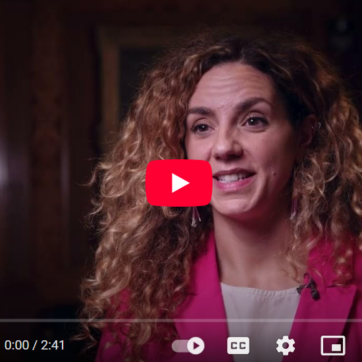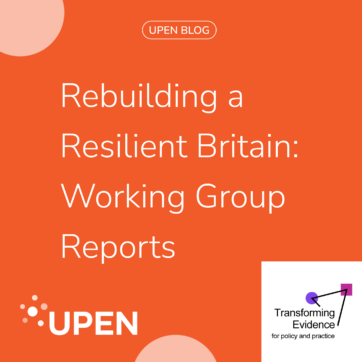Introduction
1.The Scottish Policy and Research Exchange (SPRE) is a new initiative that aims to improve collaboration between the academic and policy communities.
2.SPRE focusses on the policy environment in Scotland but has an interest in how academics engage with committees at Westminster as well as other interfaces between academic and policymaking institutions.
3.SPRE develops tools in real and digital space that allow early-career researchers to work on live policy questions suggested by officials. This allows officials access to world-class analysis and, at the same time, giving those researchers experience of writing for policy, working in interdisciplinary teams and working with officials.
Overview
4.This submission will focus primarily on the issue of how committees relate to the academic community especially in terms of the range of voices they hear.
5.It suggests that the relatively limited range of expert voices heard by committees – whether that is defined by career stage, gender, race, institutional affiliation, location or discipline – limits the insights available to members and officials. Such a missed opportunities are particularly troubling where several committees address the same topics but continue to hear from the same voices and learn the same lessons.
6.Universities are increasingly encouraging and providing support for ‘policy engagement’ and there is a growing number of scholars able to contribute to the policymaking process. Some relatively minor changes in practice and culture would allow parliament to reap the maximum benefit from this change.
7.Greater use of technology, benchmarking and targets, and informal events would dramatically expand the evidence base but should also be accompanied by a change in culture.
Questions
Are committees getting the right evidence? What barriers are there to select committees getting the information they need?
8.Partly as a result of the ‘impact agenda’ there is an ever-growing number of scholars interested in engaging with parliament and other public bodies. However, a combination of practical challenges, path dependency and uncertainty as to how to engage can mean that newer voices can be overlooked.
9.There have recently been considerable efforts both by parliament and HEIs to address this tendency to rely on ‘the usual suspects’ but there is still considerable room for improvement.
10.As well as developments in parliament such the work of the knowledge exchange team in POST, many universities are prioritising greater policy engagement and two networks have recently been launched – SPRE and UPEN – to support activities in this area.
11.However, it remains the case that it is inevitably easier to identify those scholars who have previously given evidence. It is also easier for academics who live close to London to appear in person. There is considerably anecdotal evidence that female and younger scholars in particular are likely to rule themselves out from what can appear an intimidating process.
12.It can also sometimes appear to be a culture of deference within parliament to a particular type of older, professorial academic – frequently male and based at a Russell Group university. This in turn encourages a belief among other academics that this process is not for them. As a result, committees are denied access to the research being conducted by those scholars.
13.An inherent London bias exacerbates this problem as younger scholars and those at newer universities are less likely to have the opportunity to travel during term time, which coincides with parliament sitting.
What more can be done to encourage witness diversity and wider public engagement?
14.There are several actions that could be taken to encourage a more diverse group of academics to engage with inquiries.
15.More systematic use of technologies such as video conferencing would dramatically expand the ‘talent pool’ of witnesses. Geography is not the only issue here but it compounds the challenges faced by those whose professional or caring commitments make it difficult to attend meetings in central London. Aiming to make this the norm rather than an occasional exception would diminish the sense that engaging with policymakers is the preserve of a select few.
16.The thought of a formal inquiry session is quite intimidating for many. Committees could take the opportunity to meet with early career researchers in less formal settings such as lunch during a visit outside London.
17.The relative success of targets for gender balance among witnesses suggests that a similar approach could be applied to the institutional affiliation and career stage of expert witnesses. This would help address the preponderance of witnesses drawn from Russell Group institutions and those in the London and the South East of England.
18.Encouraging senior scholars to bring along junior colleagues with them when they are called to give evidence, and providing expenses, would help demystify the process and create networks between those researchers, members and officials.
19.Making greater use of knowledge brokers such as knowledge exchange staff within universities, learned societies and emerging groups such as SPRE and the Universities Policy Engagement Network would considerably expand the reach of officials into expertise on a given topic.
20.Finally, there is a need for a culture change that addresses the assumption the more senior someone is the better they will be placed to address a particular question. Scholars toward the end of their careers can bring a breadth of understanding that is incredibly valuable but there also needs to be space for researchers earlier in their careers, who may well be the ones working on exactly the new solutions to old problems that committees are seeking.
Do select committees have the right resources to get the job done? Do they have access to the expert advice and commissioned research they need? How might they collaborate more effectively with the publicly-funded and charitable sector research bodies?
21.There is a particular challenge faced when conducting an inquiry (or undertaking any complex investigation). It is often the case that the pertinent questions only become clear at the end of the inquiry.
22.This could be in part be addressed by more effective use of academic knowledge at the scoping stage. That might consist of workshopping the remit and questions with early career researchers, commissioning literature reviews or status
reports setting out current knowledge, comparative perspectives and current controversies in academic inquiry.
23.Although individual inquiries need to be nimble and responsive, there may be occasions where publishing broad Areas of Research Interest along the lines of those currently produced by government departments would encourage researchers to be more proactive in their engagements with committees.
24.Internships and secondments are a useful tool in immersing academics in parliament. Making greater use of these would be very beneficial, especially if the models used can allow for remote or flexible working. Conversely, allowing time for clerks and other officials to take up secondment opportunities in universities will help keep their networks up to date and allow them to act as ambassadors for parliamentary engagement.


